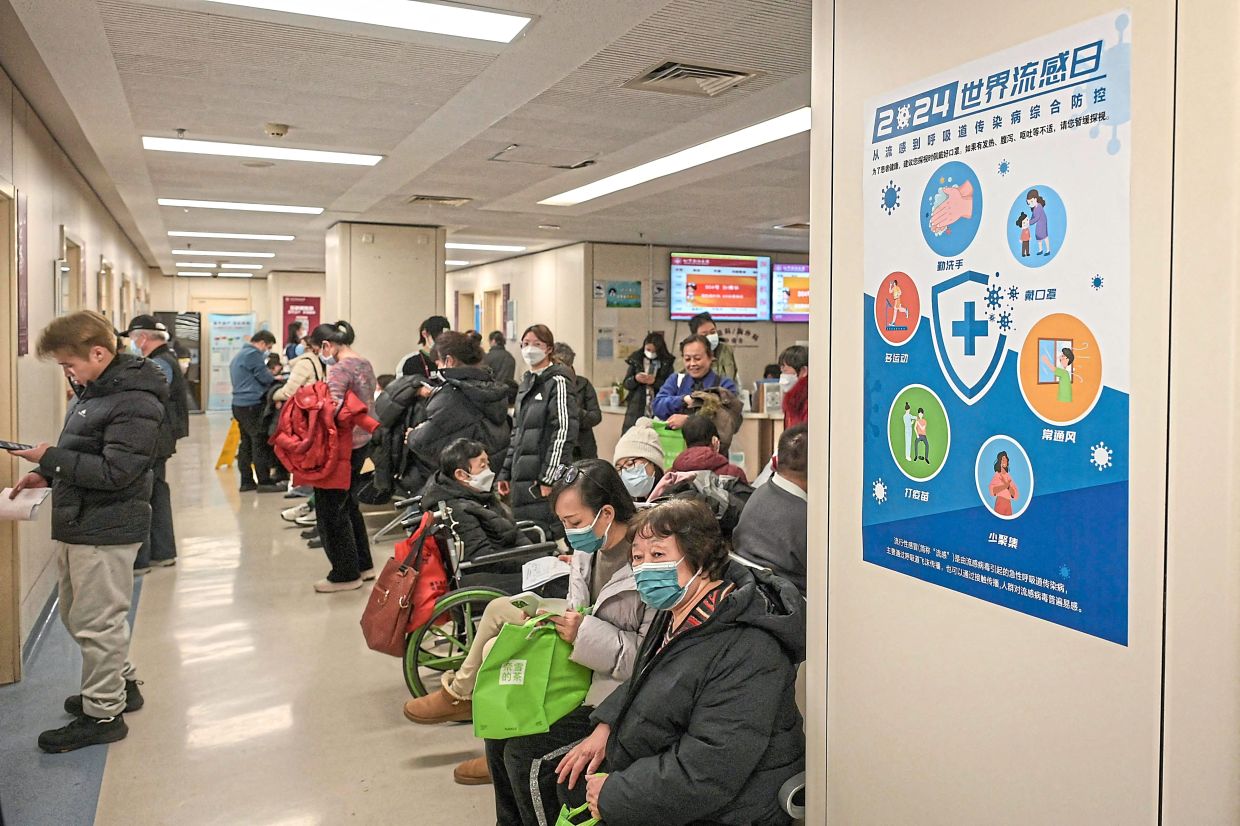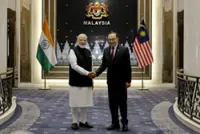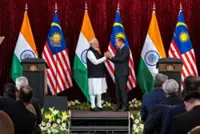Keeping the virus away: A worker preparing a fence to close off a residential area under Covid-19 lockdown in the Huangpu district of Shanghai in China in this file photo from June 10, 2022. — AFP
From blackouts, a racing heart, extreme fatigue and brain fog to severe depression and anxiety, DVL Padma Priya was hit with a constellation of symptoms in 2020, just months after recovering from Covid-19.
But without a name for her condition or support from health professionals, she said she struggled to understand what was wrong.
“I intuitively felt it had something to do with Covid because my health spiralled after that. But I wasn’t getting any answers,” Priya, 38, told the Thomson Reuters Foundation by telephone from Brisbane, where she moved last year from the southern Indian city of Hyderabad.
Priya is one of some 230 million people globally thought to be affected by long Covid – defined as symptoms persisting for three months or more after the initial infection. The effects range from mild to disabling and there are no proven diagnostic tests or treatments.
In some Asian countries, the problem is compounded by big gaps in documenting and understanding the prevalence of long Covid, leading to a blind spot in understanding its true impact.
Dr Ayush Gupta is a pulmonologist who specialises in Covid-19 treatment at New Delhi’s Sitaram Bhartia Institute of Science and Research. He said patients often seek help from specialists not involved in acute Covid-19 care who may not connect symptoms to previous coronavirus infections.
Priya burned through her life savings visiting a string of specialists – from a cardiologist to an endocrinologist, a gynaecologist and a psychiatrist. Many of them, she said, dismissed her symptoms as anxiety or a figment of imagination.
“It was this saga of being in constant pain and also facing medical gaslighting to the point where I kept asking myself, ‘Am I going mad?’” said the communications specialist.
Dearth of data
Scientists and medical experts say there is a dearth of robust data on long Covid, especially in developing countries, and research findings vary significantly, hampering doctors diagnosing and treating the condition.
In India, poor data collection is a result of the fractured healthcare system, Gupta said. There were more than 500,000 Covid deaths in India, according to the World Health Organisation, and hospitals ran out of beds and oxygen.
“Whenever we face a new disease, we usually go back to our old wisdom of similar diseases. If we don’t collect this data, in the future we will have no wisdom and have to start from scratch,” Gupta warned.
India’s Health Ministry did not respond to repeated requests for comment.
Dr Cynthia Saloma, a researcher at the University of the Philippines, said she had to fight for funding and patient recruits for a long Covid study that was eventually published in September last year.
“We found that cases were very, very high. No one was really doing any database, or there was no registry for long Covid in the country,” she said. “Some doctors probably encounter patients with long Covid, but there is no systematic way by which we’re really following up on the patients.”
Covid fatigue
Saloma’s fellow researcher, Dr Marc Edsel Ayes, said there was no mechanism to report long Covid cases in the Philippines.
Gupta said India was trying to set up a centralised digital system that would store the medical history of every citizen, including whether they had suffered from Covid, but there were concerns over the privacy of the data.
Ayes said that while the healthcare industry may have the will to improve data-keeping and research, the main issue was getting funding due to “donor fatigue” and general “Covid fatigue” among policymakers amid worries about the economy.
Philippines’ Department of Health did not respond to a request for comment, but in 2023, it said it was studying how to manage cases and collect data on long Covid.
Gupta said that while the number of long Covid patients seeking treatment at his institute had declined over the past six months, it was not because they were cured, but because they had accepted the symptoms as their “new normal”.
He said the situation was likely worse in rural areas due to a huge mismatch between healthcare resources and seekers.
“We need to make healthcare more equitable because currently it’s centred in cities and metros, beyond the reach of the common person. Even if we have the best healthcare, if it’s not affordable, it means nothing,” he said. — Reuters






